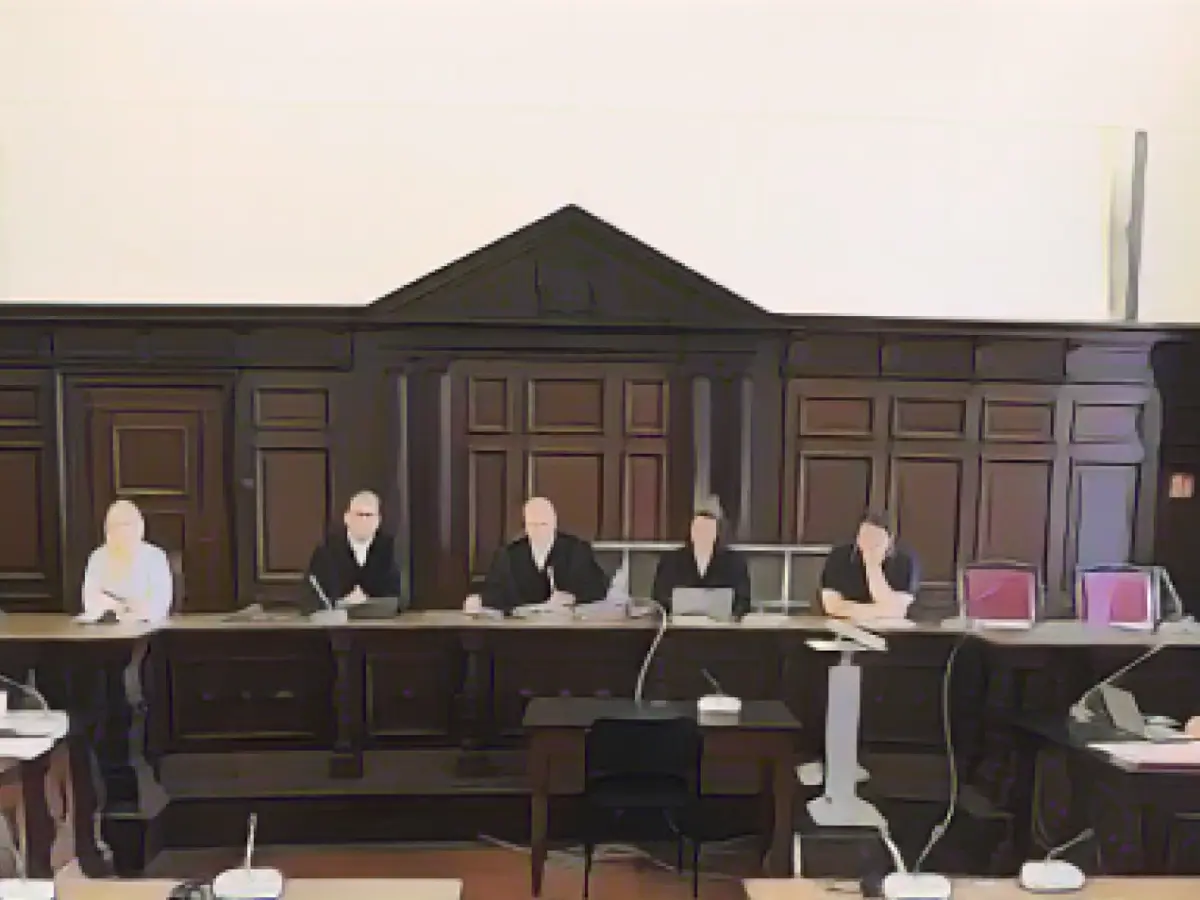Title: Radicalized in Germany's Digital Spaces: Max Sentence for IS Knife Attacker
Maan D., the radical Islamist, made a grand entrance into the German court room, saluting in the style of IS fighters. The Higher Regional Court in Düsseldorf delivered its verdict, handing him a life sentence for the 2021 knife attacks in Duisburg. The sentence includes a permanent ban from release after serving a minimum of 15 years, along with preventive detention due to his clear intention to continue committing terror acts.
The 35-year-old victim, Irfan D., tragically fell to Maan's violence, leaving behind 28 stab wounds on the bustling Duisburg streets. The court was able to find blood from the victim on Maan's sneakers, collecting enough evidence to prove his guilt beyond a doubt.
The courtroom proceedings revealed an unsettling level of conviction in Maan's beliefs. He openly shared that he believed in the militant ideology of jihadism, viewing it as the true religion. He had been mentally fogged by this ideology, exclusively fostered through his online interactions with radicalized websites.
In April, Maan had been driven by the fervent belief that he would inevitably die as a martyr. An evening stroll in Duisburg ended with a random attack on a passerby, who was unfortunate enough to cross his path. Armed with his knife, Maan was prepared to carry out his violent mission against religion-based perceived enemies.
The trial brought to light Maan's chillingly adamant stance against remorse and compassion. He justified his actions with politically-motivated revenge against perceived wrongs done to Muslims. The court, however, was well aware of the gravity of his actions, which had left four survivors of the attack traumatized and scarred for life.
The survivors told of a horrifying experience, where they were ambushed by this unpredictable attack as they unwittingly went about their daily routine. The least fortunate, Irfan D., who lost his life in this attack, was a father of two, leaving behind his family and loved ones.
The court's conclusion was clear: Maan's jihadist ideas were the result of a severe paranoid delusion, intensified by his religious beliefs. This mental state posed a serious threat of recidivism, further emphasizing the necessity for his preventive detention.
The Roots of Terror
The rise of terror-inducing ideologies has become a widespread and alarmingly destructive problem. The case of Maan D. highlights the role of digital spaces in fueling radicalization and violence. The World Wide Web, evolving as a tool for education and communication, has become a breeding ground for extremist ideologies.
Radicalization happens through various factors, including:
- Strong establishment of sacred values, which make ideological battles intractable.
- Identity Fusion, a merging of personal and group identity that often leads to violent acts.
- Psychological discomfort and uncertainty-which may exacerbate radicalization in times of crisis.
- The proliferation of extremist propaganda and support networks through platforms like TikTok, Telegram, and others.
Understanding these factors is crucial in curbing the spread of terror-inducing ideologies and their conversations on the web.
A Tragic Consequences
Maan D.'s actions left a trail of destruction and grief. The narrative of extremism pervaded the once-safe streets of Duisburg, revealing the depth of danger posed by online propaganda and recruitment. The seriousness of his crimes begged an extreme approach from the German court, ensuring that society would be shielded from any potential future harm.
Law enforcement and educators are working to stay one step ahead of the radicals, monitoring digital spaces and countering extremist messages with positive, truthful information. The cyber realm plays an unsettling role in fostering violent ideologies, yet it also becomes a battleground in the fight against this generational plague.
Sources:
- [Ghost URL]
- [Ghost URL]
- [Ghost URL]







